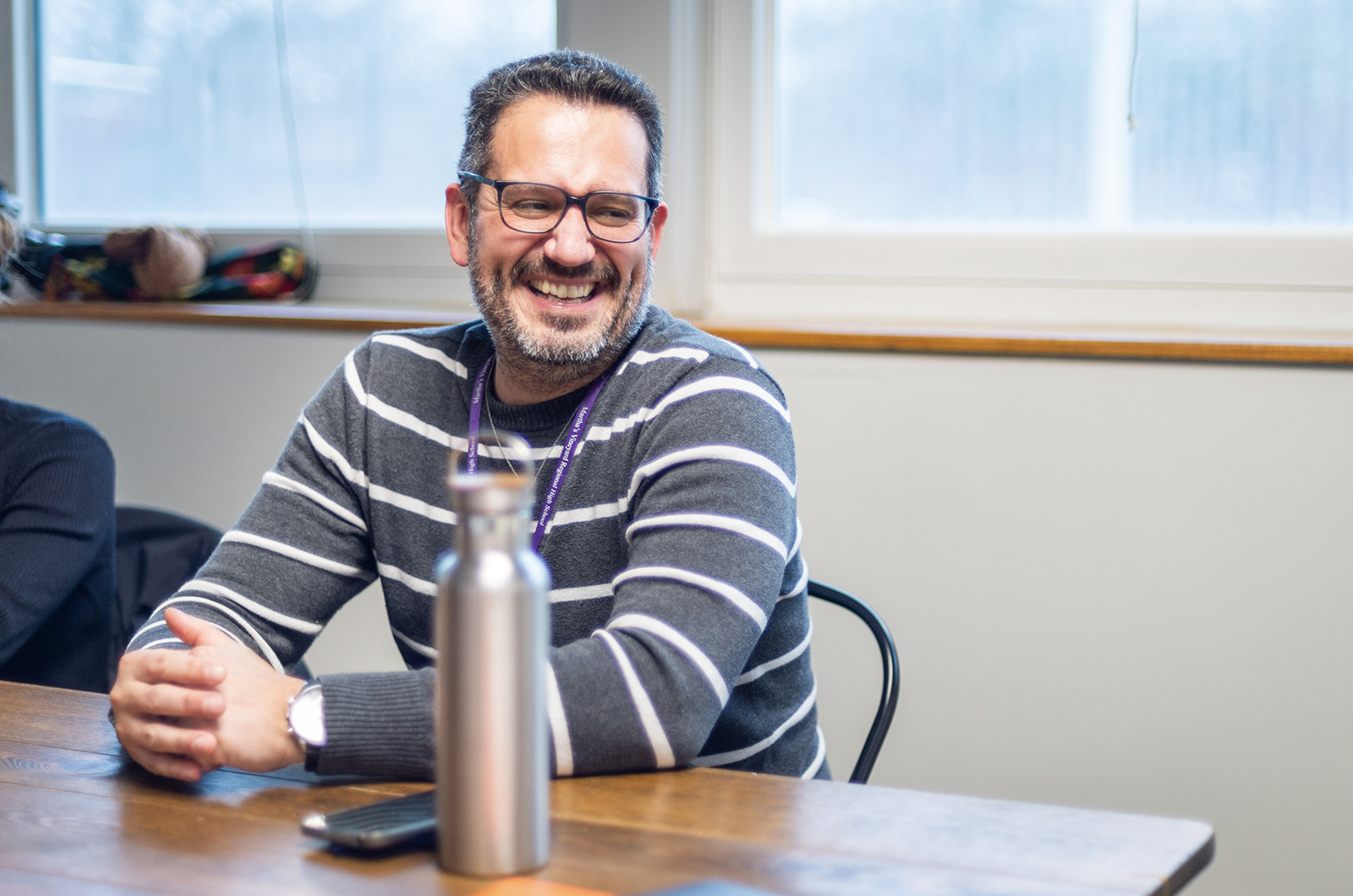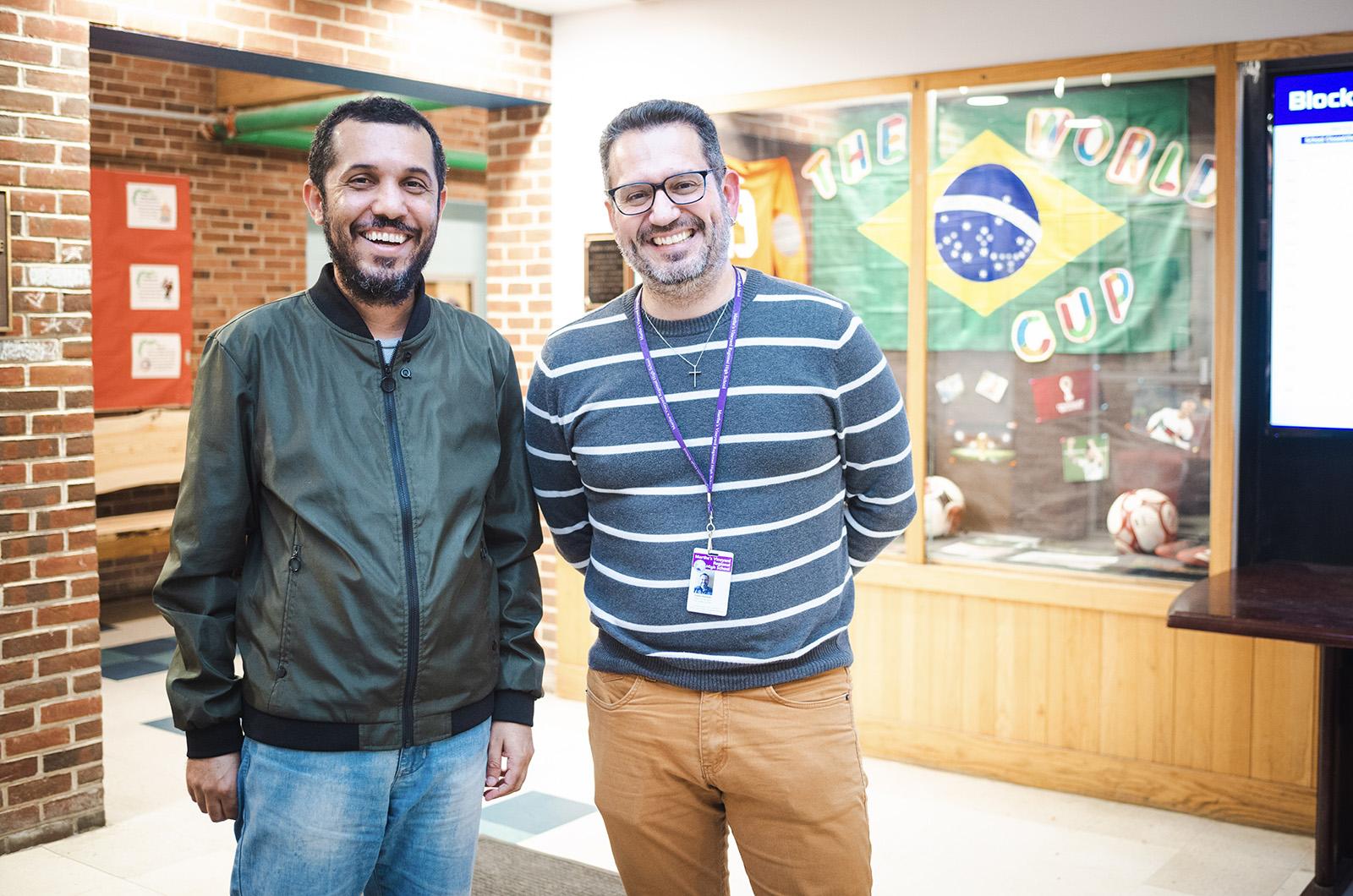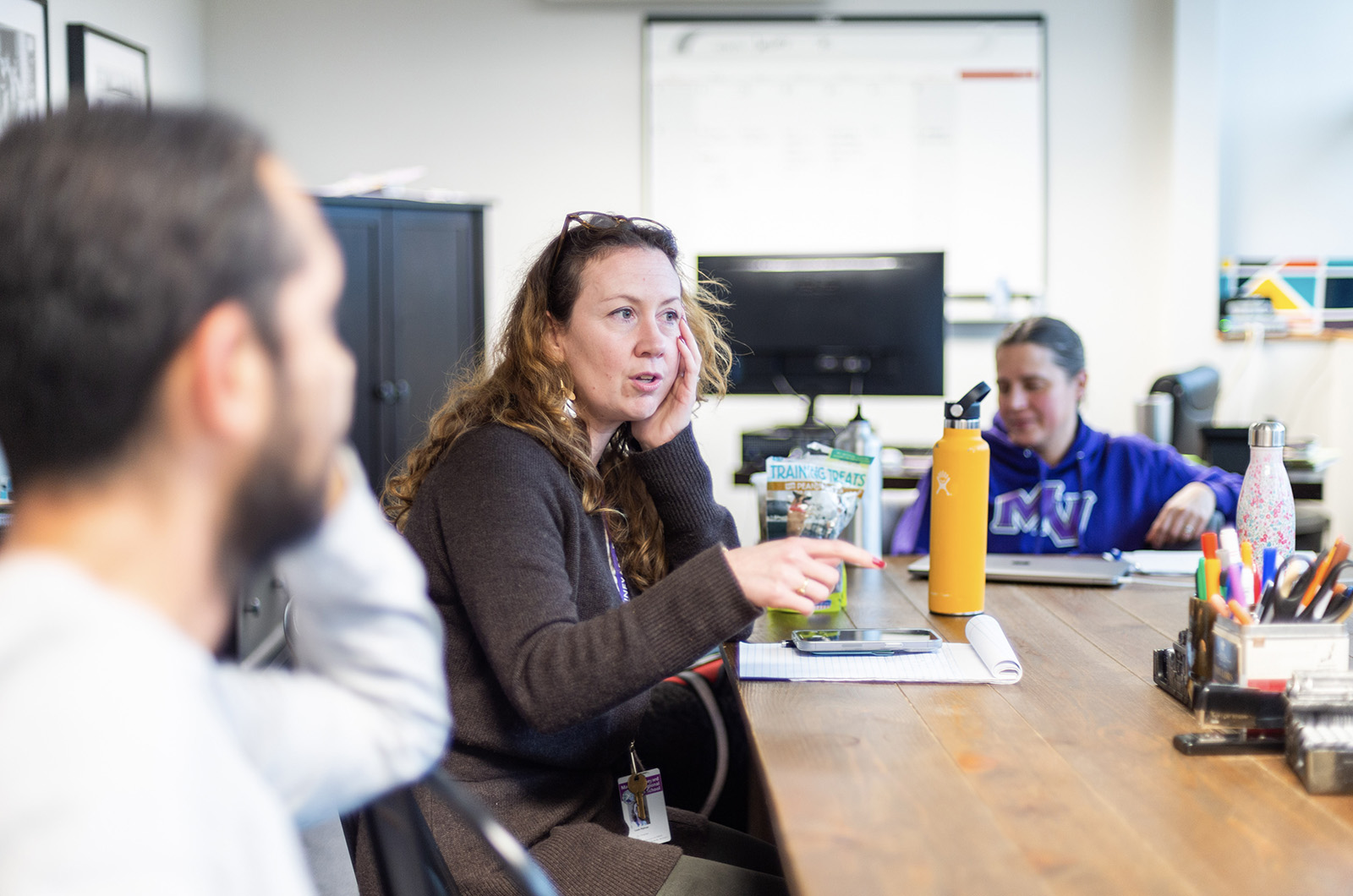Nearly a quarter of the students now enrolled at the Martha’s Vineyard Regional High School — a total of 188 — speak Portuguese as their first language. When the school was tasked last winter with finding new Portuguese instructors for the school’s growing Brazilian population, principal Sara Dingledy gave one edict.
“Look anywhere and everywhere,” Ms. Dingledy said.
Taking those instructions to heart, English Language Learner director Leah Palmer looked into the visa process. For many students, language isn’t the only obstacle between them and their education, she explained. Bringing in instructors who understand their cultural background helps engage students on multiple levels. She had started to look into the work visa process when a colleague recommended Daniel Soares, a doctor professor of Portuguese Language and Literature, based in the city of Inhumas, state of Goiás.
Dr. Soares has long studied educational systems in Brazil, and had always had his eyes on the American educational system, he said in a recent interview at the regional high school. He had just been named chair of his department when he accepted the offer to come to the Vineyard.
“People asked me, ‘Are you out of your mind?’” he said. “But I wanted the adventure.”
Carlos Trindade followed a more circuitous path, pursuing degrees in Portuguese and English Languages, a post-grad degree in bilingual education and an MBA in business administration. He had been working at an educational tech start-up when he decided to return to teaching, applying for teaching jobs in Ethiopia and Uzbekistan before finding the regional high school’s posting on a job board.
“I was a foreign exchange student in the ‘90s in Virginia, and I fell in love with the country from there,” he said. “But I had no idea Massachusetts had so many Brazilians here.”
With her two candidates chosen, Ms. Palmer embarked on a lengthy visa application process familiar to many of the seasonal businesses on-Island. She found that the school could sponsor Mr. Trindade and Dr. Soares for an H1B visa, giving them the option to become permanent residents and, with that, full-time staff.
The process did hit bumps along the way. Because of visa delays, both instructors had to teach the first few weeks of their fall classes online, making their first impressions through a laptop screen.
“The computer itself is a challenge for me,” Dr. Soares admitted. “I don’t like him, and he doesn’t like me.”
Dr. Soares teaches a language arts course for native Portuguese speakers, giving students the opportunity to learn Brazilian literature and language skills at the same level English-speaking students would be learning in their English courses.
Mr. Trindade teaches beginner and intermediate level Portuguese as well as Spanish for Portuguese speakers. Languages are particularly difficult to teach remotely, Mr. Trindade said, because they require social context to fully grasp.
“There’s a physical language that you can’t do through a screen,” he said.
Although challenging, the Zoom classes did give Mr. Trindade the opportunity for a once in a lifetime prank when he finally arrived on the Island in October.
“I got to surprise them by walking through the door in the middle of an online class,” he said. “It was pretty funny.”
Because Spanish and Portuguese share many of the same roots and constructions, Mr. Trindade’s Spanish class starts at a different baseline than it would for an English-speaking class, said world language department chair Erin Slossberg.
“It’s an opportunity to fast-track students,” she said, drawing from students’ experiences speaking Portuguese in the home.
Once in the classroom, both instructors described a different uphill battle: getting their students to see Brazilian Portuguese as a means of hosting dynamic, intellectual conversations, instead of just a way to talk to their parents or grandparents.
“Many of them don’t believe they have a future in academics, so they don’t bother putting in the effort,” he continued. “I want to help them build their confidence and show them there is a value in learning other languages, in keeping up Portuguese.”
Dr. Soares’s syllabus includes works by Clarice Lispector, Joaquim Maria Machado de Assis and Cecilia Meireles, all influential writers who have given voice to marginalized groups in Brazil.
“I want my students to fall in love with their language,” Dr. Soares said. “I want them to have this experience of reading and taking a deep breath after reading . . . I want them to see that literature is a part of our fight.”
The students have given something back to their teachers as well. Last December, Mr. Trindade and Dr. Soares joined the crowd of spectators watching the Brazil vs. Croatia World Cup game, cheering, yelling and even crying alongside their students. In the high school Performing Arts Center that day, it was clear that the student body bled blue, green and yellow.

“It was amazing,” Mr. Trindade said. “Soccer for Brazil is something we can’t explain that much . . . it’s almost like a religion.”
“We need those national heroes to show that Brazil can be number one in something,” he added. “It shows us that we can be great.”
Although Brazil ended up losing to Croatia in penalty kicks, both Mr. Trindade and Dr. Soares have carried that tear-forged compatriotism into the new semester.
“When I come into the classroom, I feel like I am back in Brazil,” Dr. Soares said.










Comments (9)
Comments
Comment policy »